Peter Beinart
By abandoning diplomacy, the president risks war, humiliation, or both—and has put himself at Iran's mercy.
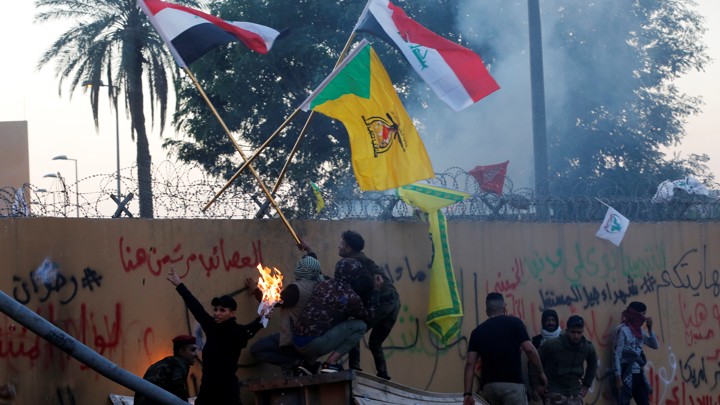
Over the past 18 months, Donald Trump has picked a fight with Iran that he won't end and can't win. That fight has had horrifying consequences for the Iranian people, led Tehran to restart its nuclear program, and now left parts of the American embassy compound in Baghdad in flames. In the days and weeks to come, Trump's policy will likely lead either to war or to additional American humiliation, or both.
The fight began in May 2018, when the Trump administration left the Iran nuclear deal, and intensified last spring, when the United States designated Iran's Revolutionary Guard Corps a terrorist organization and moved to shut offIran's ability to export oil. Numerous observers warned that Iran would meet America's escalation with escalation of its own. The Revolutionary Guard Corps designation, The New York Times reported last April, "was opposed by some top Trump administration national security officials who said it could incite retaliation by Tehran against American troops and intelligence officers." The following month, the Times added that "in private meetings, military officials have warned the White House that its maximum-pressure campaign against Iran is motivating … threats to United States troops and American interests in the Middle East." In The Atlantic that same month, Mike Giglio noted, "The militia groups that act as Iranian proxies in Iraq … would be an effective tool for further [Iranian] escalation" against the U.S.
These predictions have proved correct. In May, the United States accused Iran of attacking oil tankers in the Persian Gulf. Then, in June, Iran shot down an American drone.
Iran's escalation left the Trump administration in a quandary. The president likes grand diplomatic gestures. But his administration's withdrawal from the Iran deal—combined with its absurdly maximalist demand that, as a condition for any future nuclear agreement, Iran entirely capitulate to Saudi Arabia in the two countries' contest for regional influence—has made a diplomatic solution to the crisis virtually impossible. In June, Trump's then–national security adviser, John Bolton, arguedfor meeting Iran's provocations with force. But Trump, convinced that his supporters want no more Middle Eastern wars, called off an attack aimed at punishing Iran for the drone strike. The attack on the drone didn't kill any Americans, Trump explained. If it had, that would have made "a big, big difference."
In backing down, he thus established a red line. And last week, Iran's proxies crossed it. An Iranian-backed Iraqi militia, Kataib Hezbollah, fired on an Iraqi military base, wounding four American servicemen and killing an American contractor. This time, the Trump administration did respond with force: On Sunday, it launched air strikes against the militia's forces in Iraq and Syria, killing 24 people and wounding 50.
But if Trump's nonresponse made America look weak in June, his military response on Sunday set off a chain of events that has made America look even weaker. On Tuesday, following funeral services for the dead militiamen, thousands of supporters of Kataib Hezbollah and other pro-Iranian militias stormed the U.S. embassy in Baghdad, shouting "Death to America." Outraged by the U.S. attacks, many of Iraq's top clerics and politicians are now demanding the withdrawal of all American troops. On Tuesday, Abbas Kadhim, the director of the Iraq initiative at the Atlantic Council, tweeted, "I expect the days of the large American diplomatic & business presence in Iraq to be numbered." Liz Sly, The Washington Post's bureau chief in Beirut, predicted an end game reminiscent of Saigon in 1975. "After today," she tweeted, "how do the Americans trapped inside the embassy leave except by helicopter?"
Trump, as is his wont, has responded with bluster: "Iran will be held fully responsible for lives lost, or damage incurred, at any of our facilities," he tweeted on Tuesday. "They will pay a very BIG PRICE! This is not a Warning, it is a Threat." The Pentagon announced plansto send in reinforcements. But with each escalation, Trump's predicament worsens. His confidants insist that he can't afford a war—which would likely boost oil prices and damage the economy—especially in an election year. Yet he also can't pursue real diplomacy, at least not without provoking a confrontation with the GOP's hawkish foreign-policy elite. He's caught between his desire to avoid being like George W. Bush and his desire to avoid being like Barack Obama.
So, absent a revolution that replaces the Islamic Republic with a more pliant regime, he's at Iran's mercy. Given the crushing sanctions America continues to impose, Iran has every incentive to make America bleed. Its proxy armies offer it numerous opportunities to do so. And every time it does, it offers Trump the unenviable choice of launching a potentially catastrophic third Middle Eastern war or being exposed as a paper tiger.
When it comes to Iran, Trump has shifted Republican foreign policy away from war without shifting it toward diplomacy—the only stable alternative to war. So he's caught in a kind of purgatory. The American embassy compound in Baghdad, now covered in pro-Iranian graffiti and strewn with broken glass, is the latest symbol of that purgatory. It probably won't be the last.

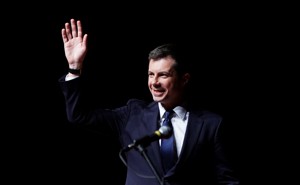
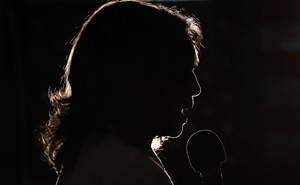
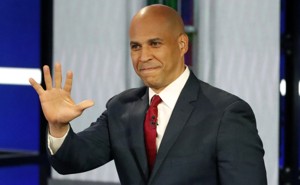
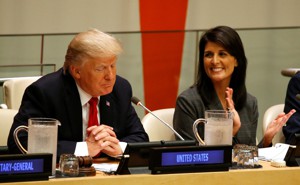
Commenti
Posta un commento